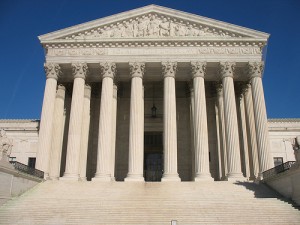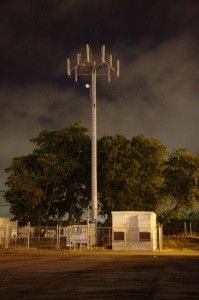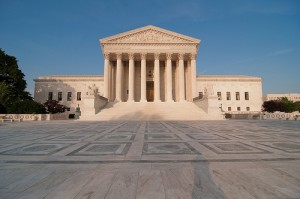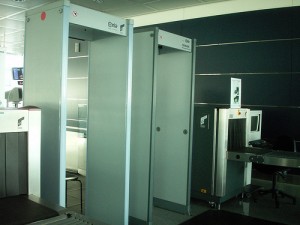Supreme Court Long Conference Results Are In!
Posted
06 Oct 2014 in Case Notes
Last Monday’s Supreme Court “long conference” did not disappoint. The Supreme Court granted a total of 11 petitions. At least four of those cases are relevant to local government.
Housing discrimination. For the third time the Court has accepted a case involving this issue of whether disparate-impact (as opposed to disparate treatment) claims can be brought under the Fair Housing Act (FHA). It remains to be seen if Texas Department of Housing and Community Affairs v. The Inclusive Communities Project will settle like its predecessors, Mt. Holly v. Mt. Holly Citizens in Action and Magner v. Gallagher. The 11 federal circuits that have decided this issue have all held that disparate-impact claims are actionable. The Supreme Court is expected to rule to the contrary. Local government have been sued for disparate impact under the FHA and have sued other entities.
Fourth Amendment search. In its second Fourth Amendment case of the term, Rodriguez v. United States, the Court will decide whether a police officer violates the Fourth Amendment by extending (for just a few minutes) an already-completed traffic stop for a dog sniff. The Eighth Circuit held the search in this case was reasonable. The police officer waited seven or eight minutes after the traffic stop was completed before deploying his sniffer dog because he wanted backup given that there were two people in the stopped car.
Employment discrimination.
At least four of those cases are relevant to local government.
Housing discrimination. For the third time the Court has accepted a case involving this issue of whether disparate-impact (as opposed to disparate treatment) claims can be brought under the Fair Housing Act (FHA). It remains to be seen if Texas Department of Housing and Community Affairs v. The Inclusive Communities Project will settle like its predecessors, Mt. Holly v. Mt. Holly Citizens in Action and Magner v. Gallagher. The 11 federal circuits that have decided this issue have all held that disparate-impact claims are actionable. The Supreme Court is expected to rule to the contrary. Local government have been sued for disparate impact under the FHA and have sued other entities.
Fourth Amendment search. In its second Fourth Amendment case of the term, Rodriguez v. United States, the Court will decide whether a police officer violates the Fourth Amendment by extending (for just a few minutes) an already-completed traffic stop for a dog sniff. The Eighth Circuit held the search in this case was reasonable. The police officer waited seven or eight minutes after the traffic stop was completed before deploying his sniffer dog because he wanted backup given that there were two people in the stopped car.
Employment discrimination.










